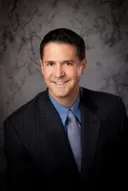Healthcare in 2020 - A Physician Perspective

Vasyl Dolmatov/123RF.com
The last twelve months have brought unprecedented change to the healthcare system. No facet has been untouched. The degree and severity vary widely, depending on position and perspective.
Applying ancient wisdom to modern problems relies on the premise of obstacles making one stronger.
"Our inward power, when it obeys nature, reacts to events by accommodating itself to what it faces—to what is possible. It needs no specific material. It pursues its own aims as circumstances allow; it turns obstacles into fuel. As a fire overwhelms what would have quenched a lamp. What's thrown on top of the conflagration is absorbed, consumed by it—and makes it burn still higher."
-Marcus Aurelius
Undoubtedly 2020 presented many daunting challenges. It is often through adversity that the courageous and creative rise to exceed expectations. The following is one physician's view through a retrospective lens.
Staffing Issues
The administrative nightmare known as COVID-19 created staffing headaches of proportions not seen since the 1918 Spanish Flu pandemic. The pandemic crushed certain parts of the country due to a flood of patients and scarce ICU beds. Other regions found themselves overstaffed and having to furlough or even fire staffing.
Healthcare professionals found themselves sequestered in hotels or short-term rentals to meet staffing needs and protect their loved ones at home.
Access
As the volume of critical cases rose, less urgent problems were relegated to the waiting room's back row. Minutes quickly stretched to hours, and little could be done for less emergent problems—the final tally of those who left without being seen is unknown.
No Shows
The threat of exposure kept many patients at home who otherwise would occupy many available appointment slots. For those with severe underlying health conditions or even just public perception of danger resulted in many no-shows.
Suffering at Home
Colleagues in emergency departments across the country commented on a drop in the census of serious cases such as heart attack or stroke. The opportunity to intervene promptly evaporated for many amidst the current pandemic as the fearful elected to wait it out at home. Doctors joined media campaigns educating and urging those with heart or neurologic symptoms to please come to the ER.
Burnout
Although not a new topic, this issue has reached a critical point for many clinicians. The current statistics regarding burnout, practice closures, and doctors planning an exodus from medicine must be viewed with alarm. With every obstacle comes opportunity. It's critical to applaud the creative forward thinkers who continue to solve healthcare's most pressing problems.
Good Thing Bad Thing, Who Knows
Depending on viewpoint, the rapid approval of a novel vaccination raises questions. If unfamiliar with this proverb (good thing - bad thing), a simple Internet search will clarify the meaning.
The speed of invention and global cooperation of researchers must be applauded as the first doses of the Covid-19 were administered this December. The list is long of those eagerly awaiting data regarding the different vaccines' efficacy and safety as administration worldwide ramps up. The hope of humanity is resting on the result.
Telemedicine
Technology has improved access and safety for patients across the United States. The reality is that many simple problems can be dealt with by video or phone call. The waiting room has become the most dangerous place in healthcare, and patients quickly embraced an online version of care delivery.
Patients appreciate the opportunity to check in with their doctor, refill medications, and follow up on existing problems from the comfort of their homes. A five-minute telemedicine appointment to refill a statin or topical steroid has replaced the time spent driving to an appointment, sitting in the waiting room, and waiting some more due to the US healthcare system's inherent inefficiencies.
AI
Although the focus of 2020 was on a vaccine, talented scientists and engineers are working tirelessly to advance healthcare and science frontiers. AI has been a game-changer, solving protein folding, enhancing data modeling and mining, genetic engineering, and organ architecture - naming only a few of the 2020 scientific marvels. Deep learning techniques will continue to transform medicine and deliver meaningful use of complex data.
Blockchain
The EHR mandate significantly improved healthcare data sharing, but the blockchain will reshape the entire healthcare landscape. Privacy, portability, outcomes, smart contracts, and secure drug delivery name just a few. The reduction in fraud, data breach incidents, and counterfeit medications can save the system billions of dollars.
The darkest part of the night comes just before dawn. Humanity has thus far always risen to the challenge. The healthcare professionals, scientists, computer geniuses, and creative thinkers have come together to embrace the obstacles 2020 has thrown in humanity's path. While a gust will extinguish a candle, the same force fuels a forest fire. With hope and confidence, 2021 will be brighter than today as the chapter closes on 2020.
Related Posts
